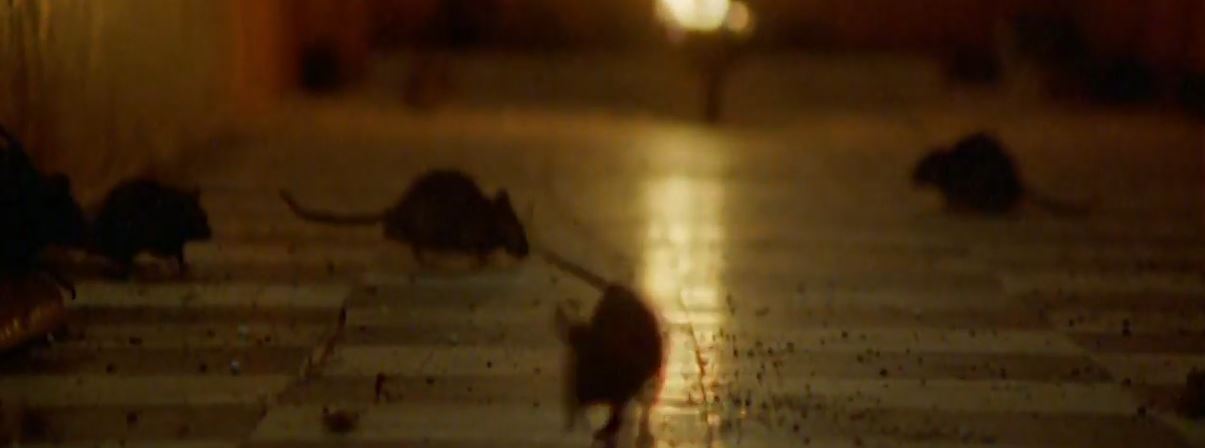Rat Repellent

If rats enter your home, they can easily start to cause damage. They will chew through wires, make noise in the walls, contaminate areas with waste, and eat your food. The absolute best prevention for keeping rats out of your home is to seal up all entry points, but you can supplement this with repellents for better results. There are numerous rat repellents to be found online, many for sale and just as many that you can make yourself with items you already have at home.
Do They Work?
The biggest question most people have is whether rat repellents actually work. Unfortunately, the majority of them will have little to no effect on the rats. They may work for a short period of time, but that will most likely be it. This means that you can use repellent methods to supplement other rat prevention techniques or to buy you enough time to seal up your home, but you shouldn't expect to rely on them in the long-term.
Ammonia
Ammonia is supposed to help repel rats because they do not like the smell. The problem, however, is that rats are more likely to die outside than inside and they know this. They will, therefore, deal with the unpleasant odor and live inside where they have access to shelter and food and are protected from predators.
Mothballs
Mothballs are frequently marketed as a way to get rid of almost any type of nuisance animal. People have been using this as a rat repellent for generations, but that doesn't mean that it is a good idea. Like ammonia, it relies on a bad smell to keep rats away and that simply won't work. To make matters worse, mothballs also pose a risk to humans. They are known to be a carcinogen, so exposing yourself to them increases your risk of cancer. In other words, they will do more harm than good.
Peppermint Oil Or Mint
Mint leaves and peppermint oil are both commonly recommended as ways to keep rats away based on the idea that they do not like the smell or taste. In reality, however, rats don't mind mint and may even enjoy it. You can use peppermint oil or plant some mint, but this will do more to boost the smell of your home in your eyes than repel rats.
Human Hair
Theoretically, rats see humans as predators and, therefore, don't like our smell. The idea is that if you spread human hair collected from your hairbrush, the smell will remind the rodents that there are humans on the property and keep them away. Experts, however, will remind you that not only does your home already have a thoroughly human smell which won't be increased by putting your hair in key spots, but rats actually like humans.
Predator Urine
Predator urine is suggested as a rat repellent as well as a repellent for various other animals although the exact predator may vary. The idea is that the predator urine will work in the same way human hair theoretically does; it should let the rats know that a predator is near and scare them away. The issue, however, is that rats have lived close to predators for centuries, relying on their small size and hiding skills to stay safe. This means that they are willing to take the risk of predators, especially when faced with the alternative of finding new shelter.
Predator Decoys
A quick search of rat repellents online will also show you more creative options such as hawk decoys or fake owls. These will theoretically trick rats into thinking that these predators are living on your property. The problem is that as mentioned earlier, rats have lived close to predators for generations.
Get A Cat
Getting a cat seems like a no nonsense approach to rat repellents, particularly if you were already considering getting one. Cats are generally good at catching rodents, but a single cat may not be able to take care of your problem. The cat also won't be able to get into all the tight spots where rats hide, such as your attic or walls. Some rats will always get by even the best cat.
Ultrasonic Sounds And Lights
There are two main types of store-bought rat repellents: ultrasonic sound machines and light machines. The sound machines claim to emit sounds at a frequency that rats can hear but humans can't and provide enough annoyance to keep them away. Multiple studies have shown that these are ineffective and the FTC agrees that they are fraudulent devices.
Chemical-Based Repellents
If you want to find a chemical-based rat repellent, you will be hard pressed to find one that isn't a poison. The issue with poison is that it is very easy for an unsuspecting animal, such as your pet, or child to find it and seriously injure themselves. Instead, your best option for rat repellents is keeping your home and property in good shape and clean.
Read the How to get rid of rats page for helpful information and to learn more about Rat Repellent

